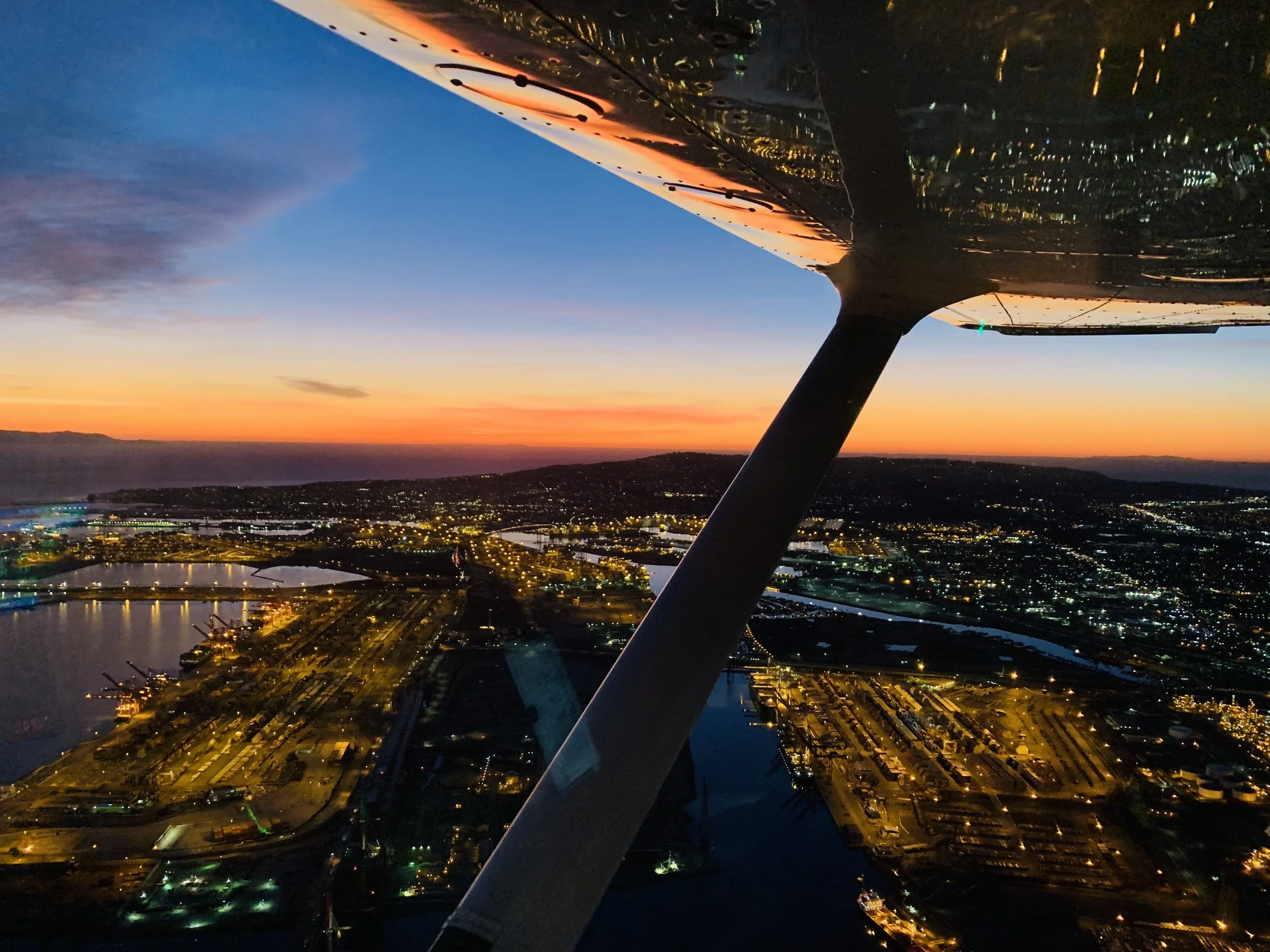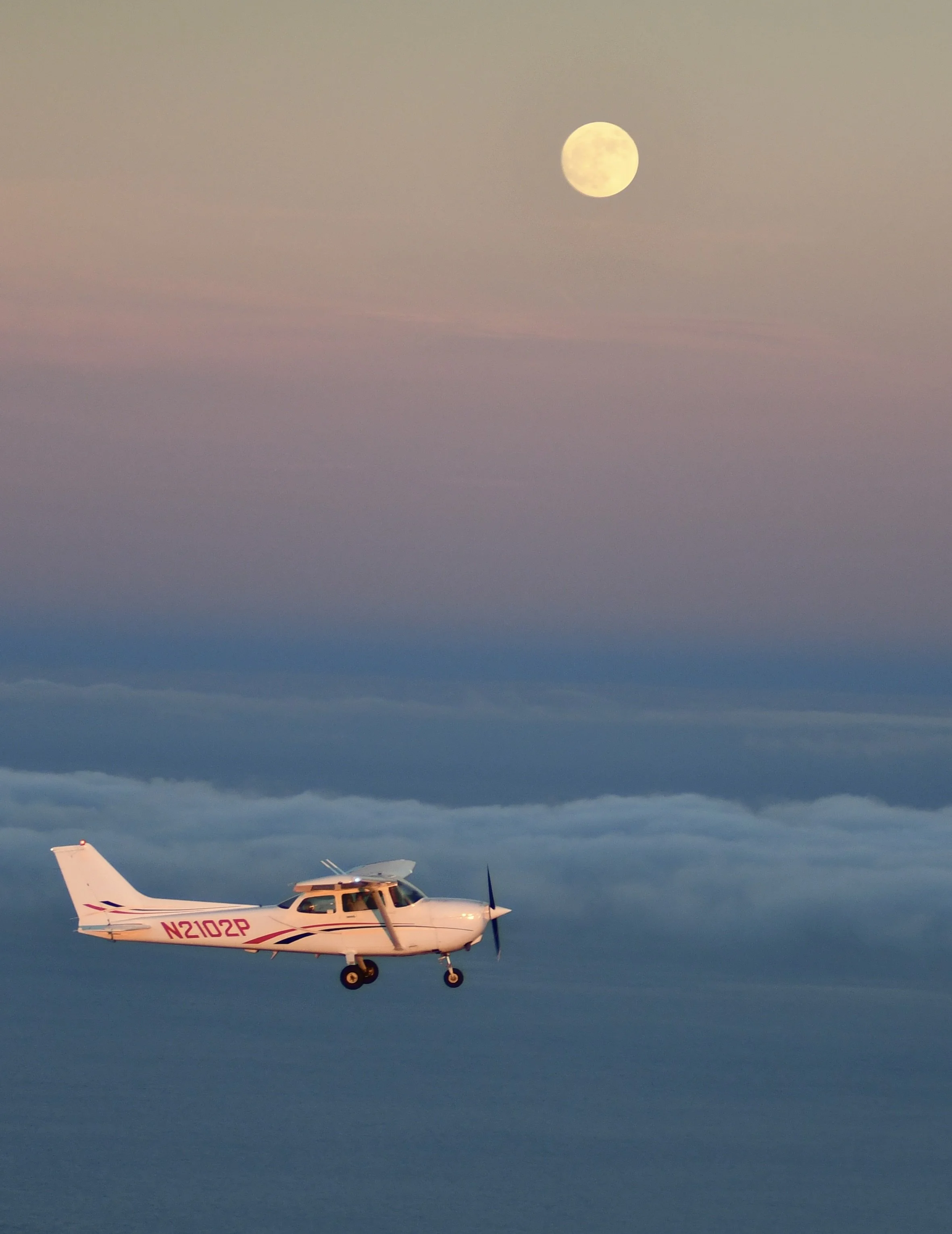
Frequently Asked Questions

We know you’ve got questions. Here are some students have had in the past.
If you have any questions or want to schedule a demo flight don't hesitate to contact us!
What kind of training does Flight Test Prep Academy Offer?
Flight Test Prep Academy provides a full range of Part 61 including :
Private Pilot
Instrument Rating
Commercial Pilot
Flight Instructor (CFI) training.
We offer accelerated 3-day ground school courses, simulator labs, and access to our well-maintained aircraft fleet in Long Beach and Fullerton. Our flexible scheduling and experienced instructors make it easier for students to achieve their aviation goals efficiently.
Take a look at our ‘What’s the Path’ page for more information on each step of the process!
✈ ✈ ✈ ✈ ✈
What is the difference between part 61 and part 141 flight schools?
Part 61 and Part 141 refer to different FAA-approved flight training structures. Part 61 offers flexible, personalized instruction, allowing students to set their own pace and schedule—ideal for those balancing work or school. Part 141 follows a structured, FAA-approved syllabus with defined milestones and stage checks, which can help students complete certifications faster.
At Flight Test Prep Academy we combine the two styles by offering a personalised education while following a proven syllabus.
✈ ✈ ✈ ✈ ✈
Why Should I choose Flight Test Prep Academy over other schools in Long Beach?
Flight Test Prep Academy stands out because of our commitment to providing you with the best combination of affordability and quality flight training. We do not believe there is a trade-off. Tom is a life-long educator and he instills this dedication to aviation education in all of the instructors at the school. We use proven syllabi to train you more efficiently than other flight school, in less time, and at a lower cost to you.
Our students earn their Commercial Pilot Certificate with an average of 70 FEWER hours and spend about $12,000 LESS on flight training than the national average.
Our fleet of well maintained aircraft (thanks to our in-house maintenance team) and dedicated instructors make scheduling time in aircraft easy and our emphasis on personalised instruction and community between students give you all the support you need to fly through the process.
Find out more on our ‘Why Us?’ page!
✈ ✈ ✈ ✈ ✈
Why do you emphasise simulator time so much?
Simulators offer a unique training environment. The two main advantages to you of beginning your training in a simulator are:
You can pause and rewind a sim, set specific conditions, and control a wide variety of factors. While in a plane there is no stopping the flight to explain a concept. In a sim you can pause whenever you want and talk with your instructor.
It is so much less expensive. Why spend $190/hour in a plane when you can get the same benefits in the first 10 hours in a simulator? The transition from simulator to airplane is very smooth and you get to jump over many hours of expensive instruction in the real airplane.
Airlines are the masters of training pilots: they have training down to a science and even there pilots start in a procedures trainer, then move up to a simulator, and only then get into the real plane. If it works for the pros, it works for us!
✈ ✈ ✈ ✈ ✈
What if I’m too young to start flight training?
Great news! There is no minimum age to start your flight training. The only requirement is that you are 16 years old before you solo. You can log time with an instructor and build valuable experience before that.
If you aren’t ready to get into the plane we have a variety of summer camps which you can participate in to learn more about aviation and kickstart your education when you do begin! Check out our ‘Aviation Summer Camps’ page for more information.
Fun fact: Students who have participated in our sim camp have seen significant advantages in ability during manoeuvres than those who start from scratch.
✈ ✈ ✈ ✈ ✈
What is the ground school about?
Our ground schools prepare you to pass the FAA Knowledge Exam; aka the written exam. This exam is one of the requirements to the Private Pilot certificate and is a good way to start your training. The knowledge builds a foundation that will enhance your flight training.
We offer a 3-day (all day) program. The former is at a pace that covers all the material in several weeks. The latter is faster-paced and can be useful as a final review before taking your Knowledge Exam.
✈ ✈ ✈ ✈ ✈
I am attending a class at college - why do I need another ground school?
Our ground schools serve the same purpose as community college aviation programs - to prepare you for the FAA Knowledge Exam. Our programs can offer you an alternative option to attending community college classes. Note that the community college academic requirements are separate from any FAA requirements or ground courses offered by flight schools.
✈ ✈ ✈ ✈ ✈
How do I take the Knowledge Exam?
The FAA Knowledge Exam is administered by a vendor called PSI. Register on their website https://faa.psiexams.com/faa/login. You must also register with the FAA on the Integrated Airman Certification and Rating Application (IACRA) https://iacra.faa.gov/. Registering in IACRA will provide you with a FAA Tracking Number (FTN), which is used to register for your exam with PSI.
✈ ✈ ✈ ✈ ✈
What are the steps to becoming an airline pilot?
The path to becoming an airline pilot can be long but it is very rewarding! You must train in aircraft and on the ground to get the required ratings. The ratings you must obtain are:
Private Pilot
Instrument Rating
Commercial Pilot
Multiengine Rating
Airline Transport Pilot
You will then have to fly to get a total of 1,500 flight hours before you can apply for your Air Transport Pilot certificate and be hired by an airline.
Most people build these hour by becoming flight instructors and teaching the next generation of pilots like you!
Find out more on our ‘What’s the Path?' page!
✈ ✈ ✈ ✈ ✈
What other pilot jobs are there other than flying for an airline?
The world of aviation is immensely vast and there are many jobs flying airplanes aside from airlines. Some of these include:
• Private Jet pilot
• Flight Instructor (CFI, CFII, MEI)
• Banner Tow
• Crop dusting
• Air tours
• Charter pilot
• Aerial fire-fighting
